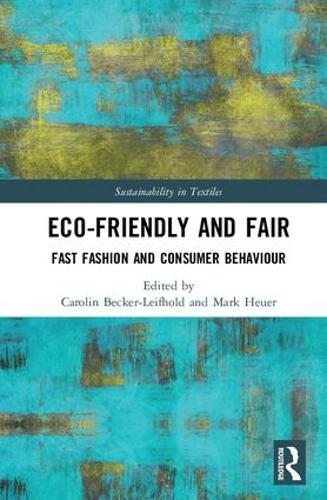Overview
The make-take-waste paradigm of fast fashion explains much of the producer and consumer behavior patterns towards fast fashion. The evolution from a two-season fashion calendar to fast fashion, characterized by rapid product cycles from retailers and impulse buying by consumers, presents new challenges to the environment, workplace and labour practices. This book provides a comprehensive overview of new insights into consumer behaviour mechanisms in order to shift practices toward sustainable fashion and to minimize the negative impacts of fast fashion on the environment and society. Concepts and techniques are presented that could overcome the formidable economic drivers of fast fashion and lead toward a future of sustainable fashion. While the need for change in the fashion industry post-Rana Plaza could not be more obvious, alternative and more sustainable consumption models have been under-investigated. The paucity of such research extends to highly consumptive consumer behaviours regarding fast fashion (i.e. impulse buying and throwaways) and the related impediments these behaviours pose for sustainable fashion. Written by leading researchers in the field of sustainable fashion and supported by the Textile Institute, this book evaluates fashion trends, what factors have led to new trends and how the factors supporting fast fashion differ from those of the past. It explores the economic drivers of fast fashion and what social, environmental and political factors should be maintained, and business approaches adopted, in order for fast fashion to be a sustainable model. In particular, it provides consumer behaviour concepts that can be utilized at the retail level to support sustainable fashion.
Full Product Details
Author: Mark Heuer ,
Carolin Becker-Leifhold
Publisher: Taylor & Francis Ltd
Imprint: Greenleaf Publishing
Weight: 0.480kg
ISBN: 9781783538201
ISBN 10: 1783538201
Pages: 224
Publication Date: 03 May 2018
Audience:
College/higher education
,
Tertiary & Higher Education
Format: Hardback
Publisher's Status: Active
Availability: In Print

This item will be ordered in for you from one of our suppliers. Upon receipt, we will promptly dispatch it out to you. For in store availability, please contact us.
Author Information
Carolin Becker-Leifhold studied Business Administration and Sustainability Management. Since 2015 she has worked as a research assistant at the University of Ulm, Germany, in a third-party project for sustainability in the textile industry. She is also a PhD student at the University of Ulm and is writing her PhD thesis about Sharing Economy and collaborative clothing consumption. Mark Heuer is an Associate Professor of Management at the Sigmund Weis School of Business at Susquehanna University, USA. Mark previously held positions in the governmental, nonprofit, and private sectors for over 30 years. His research interests include sustainability, social issues management, and national culture.




